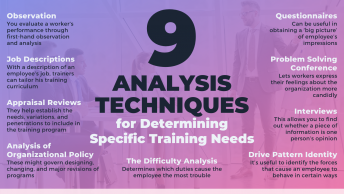 If you feel your destiny is to join the ranks of the self-employed, that’s fantastic. You’re going to need a lot more than a desire to live out your destiny and good luck to make a start-up venture successful. Before you hop onto the entrepreneur train, there are some important things to think about long before you walk away from your 9-5 job and the steady paycheck that comes with it.
If you feel your destiny is to join the ranks of the self-employed, that’s fantastic. You’re going to need a lot more than a desire to live out your destiny and good luck to make a start-up venture successful. Before you hop onto the entrepreneur train, there are some important things to think about long before you walk away from your 9-5 job and the steady paycheck that comes with it.
Deciding what small business is best for you can be difficult. To find the right fit, start by brainstorming. Evaluating a few key aspects of your life can give your brainstorming some direction and help you get the ball rolling. Start with these seven and work from there:
Plan To Be Successful – What Do You Want?
Why are some small business owners successful while so many others fail miserably? Oftentimes it comes down to a true love and passion for what they do. If you enter into a small business just because you think you can make money at it, chances are you’ll fail. If you don’t have an enthusiasm and commitment to what you’re doing that goes beyond they money you may eventually make doing it, chances are you’re going to be a very unhappy and unsuccessful small business owner.
Strengths – What Are You Good At?
What are you good at? What have you learned throughout your lifetime and your professional career that you can put to use in your own small business? We aren’t always good at recognizing our own strengths and weaknesses. This might be a good time to enlist the help of friends, family and professional acquaintances you have worked with closely in the past. It’s important that you’re honest with yourself about your strengths and find an entrepreneural venture that will marry well with your strong points.
Preferences – What Do You Like To Do?
Just because you’re good at something doesn’t mean you enjoy it. Let’s face it, just because you’re good at math as a kid doesn’t mean you should grow up to be an accountant. Sometimes what you’re good at doesn’t light your fire and that’s fine. Keep in mind that when you’re starting small business, you will live that small business 24 hours a day, 7 days a week indefinitely. Make sure your business falls in line with both what you’re good at and what you like to do.
Hobbies – What’s Your Passion?
Parlaying a passion into a small business often brings together your strengths and your preferences. Do you enjoy golf? Perhaps opening a golf pro shop is the way to go. Do you have thousands of images you’ve created as your photography hobby over the years? Perhaps a venture involving freelance or portrait photography is your best bet. Even if you can’t translate your hobby into a potential money-maker, stop to think about what you love to do and why you love to do it. That simple step can help you figure out what small business has the most potential for success for you.
Skills – What Can You Do?
Strengths and skills are two very different things. Skills are much more specific and situational. As a small business owner you will have to wear many hats. Do you have basic accounting skills? Can you keep track of your accounts payable and accounts receivable on your own? Do you have any graphic design ability? Do you have any knowledge or understanding of human resources and the recordkeeping required to comply with state and federal requirements?
Previous Experience – What Have You Learned Up To Now?
Translating what you’ve learned throughout your career to this point is often one of the undefined variables that separate the successful from the unsuccessful in the world of small business. Dig deep and figure out what you’ve learned from each of your previous jobs, internships, classes and real world experience that can help make you successful in your own ventures moving forward.
Assess Your Network – Who Can Help You?
Who have you worked with in the past that might be willing to help you or want to work with you now? Who in your network of friends, acquaintances and former co-workers might be potential customers? Who in your network could become a potential vendor? If you can work with people with whom you have an existing relationship of trust it will help to reduce the potential for problems down the road. Take a close look at your current network to determine what advantage you might be able to gain from those people you already have a relationship with.
In the end, small business success often comes down to a combination of great planning, will to succeed, good decision making and a little bit of luck. Do your homework and your chance for success goes up exponentially. Fly by the seat of your pants and you’ll wind up among the whopping majority of small businesses that fail.














It’s always best to sort out your finances before you quit your job. If you’re struggling financially, it might not be the best time for you to take a risk. Your best bet would be to make sure you have at least a saving of a couple months’ worth of expenses before you embark on your journey.